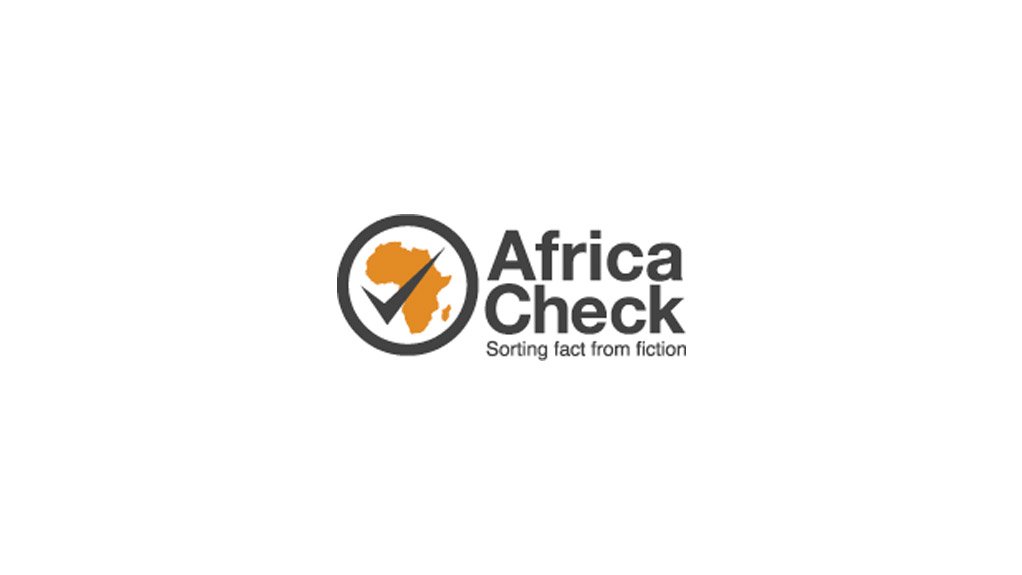Mpox is a viral disease with a distinctive rash and can be fatal. A global outbreak of the disease that began in 2022 is still ongoing, with several cases linked to the outbreak detected in South Africa from May 2024.
Mpox made headlines again on 13 August, when the Africa Centres for Disease Control and Prevention (Africa CDC) declared mpox a public health emergency in Africa. A day later, the World Health Organization (WHO) declared the disease a public health emergency of international concern (PHEIC).
The 2022 outbreak was declared a PHEIC by the WHO in July of that year, but was downgraded in 2023.
Earlier in August 2024, Africa Check published a fact sheet about mpox and the cases detected in South Africa. Here are the basics to know in the context of the new Africa CDC and WHO categorisations.
What is mpox? Is it the same thing as monkeypox?
Mpox used to be called monkeypox. This name was changed to mpox in 2023 to comply with WHO disease naming guidelines, but the two names refer to the same disease.
The most noticeable symptom of mpox is a rash, with distinctive lesions that develop into blisters. Mpox can also cause other symptoms, including fever, sore throat, headache, swollen lymph nodes, muscle aches and fatigue.
The disease is spread almost entirely by physical contact between people, although it can also be spread via contaminated clothing or bedding, and by contact with animals. Despite its older name, monkeys are not the only animals that can transmit mpox.
In the global outbreak that began in 2022, sexual contact has been identified as the primary means of transmission.
However, the 2022 global outbreak is not the reason why the WHO and Africa CDC have declared public health emergencies. It is a second strain of the virus which is responsible for this.
Wait. There are multiple mpox outbreaks?
Yes. Public health organisations are currently monitoring two outbreaks. One of these is the 2022 global outbreak mentioned above. The other is an outbreak that has particularly affected the Democratic Republic of the Congo (DRC). This outbreak is being driven by a different clade, or strain, of the mpox virus.
As any virus reproduces, random mutations and variations in its genetic material are passed down from one generation of the virus to the next. Scientists can use these genetic variations to establish how closely related two samples of the virus are, a process a little like drawing a family tree to show how closely related two people are.
A group of very closely related strains of the same virus is called a clade. There are two main clades of mpox, creatively referred to as clade I and clade II. Clade II is the strain of mpox responsible for the 2022 global outbreak. It has been found in dozens of countries around the world during the ongoing outbreak.
Until very recently, clade I was found almost exclusively in Central Africa, and particularly in the DRC. On 15 August 2024, the Public Health Agency of Sweden announced that it had detected the first clade I mpox case to be diagnosed outside of the African continent. Since then, cases have been reported in the Philippines and Thailand.
The clade I outbreak appears to be driven by a sub-clade (clade Ib) that has spread rapidly in eastern parts of the DRC. Clade I has so far had a higher fatality rate, the rate at which those who contract the disease die from it, than other strains of mpox. This appears to be the same for clade Ib.
Clade Ib is also spreading mainly via sexual contact. It is the rapid spread of this clade, and its appearance in several countries that have never reported mpox cases, including Burundi, Kenya, Rwanda and Uganda, that has led public health officials to declare mpox an emergency.
None of the cases detected in South Africa to date have been clade I. Cases here have all been caused by clade II (sub-clade IIb), the strain associated with the global outbreak.
Mpox in South Africa
The South African department of health has said that South Africans should not panic and that mpox is under control in the country. The department has said that it is still trying to procure vaccines to protect those most vulnerable to the disease. However, no new cases have been detected since 4 August, and there is no evidence that the deadlier clade I has reached South Africa.
In a public statement, the health department said:
We encourage businesses and organisations with operations in the affected countries to ensure to put in measures in place to ensure their employees who regularly travel to and from South Africa, are well informed of mpox; and are fit to travel. Travellers experiencing mpox-like symptoms should seek immediate medical attention and if possible, delay their travel until they are diagnosed or fully recovered in order to prevent possible cross border transmission.
We also urge all people who experience any of the mpox symptoms, with or without international travel history to present themselves to a health facility for clinical observation and confine themselves to one place until their test results are available.
In August, the WHO conducted a risk assessment and determined that the risk of mpox was “high” for people living in the eastern DRC and neighbouring countries, and in areas of the DRC where mpox is endemic. The risk was “moderate” for people living in “Nigeria and countries of West, Central and East Africa where mpox is endemic”. The risk was also “moderate” in other countries in Africa and internationally .
For more information on mpox, you can read Africa Check’s fact sheet on the disease. You can also follow updates on mpox in South Africa on the National Institute for Communicable Diseases website.
This report was written by Africa Check., a non-partisan fact-checking organisation. View the original piece on their website.











